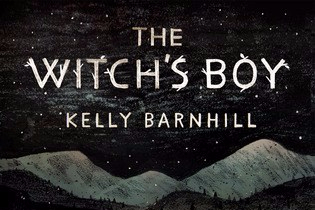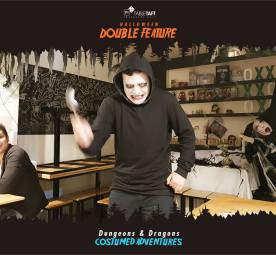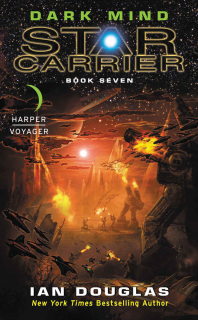After seeing the artistic possibilities of DV in Pedro Costa’s films, I was pretty excited to see Hideaki Anno take on the format in Love & Pop. It’s a film about teenage girls getting paid to literally spend time with older men — it explores youth culture and how even normal behaviors like eating with others at the kitchen table can be commodified in a society abstracted from human connection. The handheld style physically intrudes on the characters’ spaces, suggesting that when you’re a teenage girl, you can’t just belong to yourself.
It’s inevitable to compare a film that comes directly after one of the greatest movies you’ve ever seen to what precedes it. In some sense, the visual callbacks to End of Evangelion (placed within a much lighter, broader context in the film) seem to be playing with this reaction…but this film made me realize things I saw in EOE that I thought were indicative of Anno’s sensibilities maybe aren’t as consistent as I think they should be. Love & Pop is great when it narrows in on the stuff I just talked about — what it means to be a teenage girl trying to discover who you are when you can’t even walk to school without worrying you’ll be harassed — and the camerawork is some of the craziest I’ve ever seen, but this is all muddied by a bunch of vague melancholic monologues that seem more out of a second-rate anime than anything by a master.
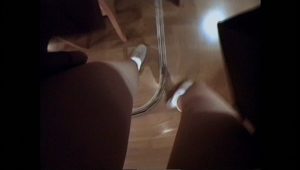 Evangelion is an artistic achievement because of how it makes the intensely personal visceral, and I assumed Anno would do more of the same here, using the immediacy of digicam to do the talking. but there just isn’t anything to grasp onto with the characters to match the vitality of the camerawork. It’s a very confused film, wanting to be a free-wheeling exploration of its unique societal situation using blank-slate characters to guide us along the way, but it can’t break away from wanting to obliquely develop those characters in weird shoehorned-in minutes of meaningless dialogue that add almost nothing to characters we have no reason to care for.
Evangelion is an artistic achievement because of how it makes the intensely personal visceral, and I assumed Anno would do more of the same here, using the immediacy of digicam to do the talking. but there just isn’t anything to grasp onto with the characters to match the vitality of the camerawork. It’s a very confused film, wanting to be a free-wheeling exploration of its unique societal situation using blank-slate characters to guide us along the way, but it can’t break away from wanting to obliquely develop those characters in weird shoehorned-in minutes of meaningless dialogue that add almost nothing to characters we have no reason to care for.
This tactic is something I’ve seen a lot of in anime — condensing situations into airy statements that obscure more than they reveal. In Evangelion, everything meant something. Every piece of dialogue that would normally be used to substitute for complex character development in other anime is just a piece of every character’s psyche. The kinds of things Shinji and Rei say in episode 26 would not have the same emotional power and weight if we didn’t understand their traumas, their doubts, and their fears. And most importantly, the obscurity of EOE‘s form and visuals made sense because they expanded on the specific experiences of each character.
When the same kinds of high-level psychological concepts are transposed onto characters that we simply don’t know and feel as much for, the effect is lazy. The worst example of this is when main character Hiromi encounters a guy who she has a long, friendly conversation with who then proceeds to physically terrorize her under the guise of “your parents would be ashamed if they knew you were doing this!”. Shortly after that, she launches into some long-winded drivel where it’s weirdly implied that this guy somehow cared about her and might represent the kind of emotional connection she was looking for all along…huh? This is a few minutes after a scene where we witness the humiliation of a teenage girl quite literally from her point of view — we see her naked legs sprawled out as this guy is in her face and shaking her as she cries. If this is a criticism of how easily teen girls latch onto men who abuse them, it’s not a very clear one.
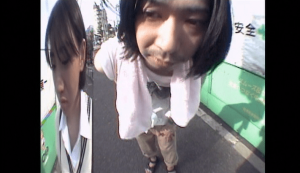 It’s this lack of specificity, when contrasted against the narrow focus of what came before it, that ultimately messes this film up big-time. Those segments might be in the film because this is an adaptation of a novel, but I don’t think directors, especially those who are as capable of a fully-formed idea as Anno, are obligated to try to adapt all parts or even all character trajectories of whatever their source material is.
It’s this lack of specificity, when contrasted against the narrow focus of what came before it, that ultimately messes this film up big-time. Those segments might be in the film because this is an adaptation of a novel, but I don’t think directors, especially those who are as capable of a fully-formed idea as Anno, are obligated to try to adapt all parts or even all character trajectories of whatever their source material is.
Love & Pop is probably just a cool experiment Anno did with digital for the hell of it, but that doesn’t excuse how fundamentally disjointed it is. However, the style of this film is so fun that I think it’s ultimately worth watching. Love & Pop is a good example of how specifying your focus can be better than trying to make every story in a film relatable to every viewer. Not every experience can be generalized to level with every kind of person, and if you’re perceptive enough you can still learn from something that isn’t speaking to everyone.
Advertisements Share this:
